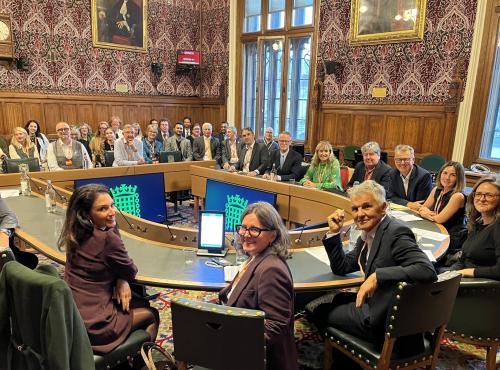The Updated Gatsby Benchmarks: A Critical Juncture for Youth NEET Reduction
The publication of updated statutory guidance on careers education in May 2025 represents a watershed moment for the United Kingdom's approach to preparing young people for their futures. As we confront the stark reality that nearly one million young people aged 16-24 are currently not in education, employment, or training (NEET), the Department for Education's decision to update the Gatsby Benchmarks could not be more timely.
A Framework Under Pressure
The updated Gatsby Benchmarks, which will come into effect from September 2025, arrive at a moment of unprecedented challenge. Recent statistics paint a sobering picture: the UK's NEET rate stands stubbornly at approximately 13.4%, affecting one in eight young people. This represents not merely a statistical concern but an economic catastrophe in the making. Analysis suggests that each young person who becomes NEET costs the UK economy over £100,000, with the potential to add £69 billion to GDP if we could achieve the lowest NEET rate in the OECD.
The evidence linking high-quality careers guidance to NEET reduction is compelling. Research demonstrates that young people in schools and colleges with the highest quality careers provision are 8% less likely to become NEET, with this reduction reaching 20% for the most disadvantaged schools. These are not marginal gains – they represent life-changing interventions that could transform the trajectories of hundreds of thousands of young people.
APPG Research: The Missing Link
The All-Party Parliamentary Group for Skills, Careers and Employment has conducted vital research that illuminates the connection between careers guidance quality and youth outcomes. In particular, the support for the Career Guidance Guarantee proposal provides crucial evidence for why the updated Gatsby Benchmarks matter.
The APPG held a panel event in December 2024 on careers guidance and its potential for economic growth. The insights shared with its parliamentary members by the Careers Policy Development Group (CDPG) and the Careers Development Institute (CDI) demonstrated that investing in career guidance yields significant returns: youth guidance generates £2.50 for every pound spent, while guidance for unemployed adults yields £3.20. These figures underscore that careers guidance is not a cost but an investment with measurable economic returns.
The six-point action plan – including publishing a careers strategy, finishing the Gatsby revolution, challenging youth unemployment, developing graduates' careers, supporting lifelong career development, and ensuring quality and professionalism – provides a roadmap that the updated benchmarks begin to address.
Implementation Challenges and Opportunities
Despite these positive developments, significant challenges remain. The transition to updated benchmarks coincides with broader economic pressures on educational institutions. Job vacancies have fallen by 43,000 compared to the previous year, while youth unemployment continues to rise. In this constrained environment, schools and colleges face pressure to deliver enhanced careers provision without proportionate increases in resources.
The expansion of guidance to independent training providers for the first time represents both an opportunity and a challenge. While this extension recognises the crucial role ITPs play in youth development, it also places new expectations on providers who may lack established careers infrastructure.
The Government's introduction of Risk of NEET Indicators (RONI) processes provides a complementary framework for early identification. However, concerns remain about resource allocation, data sharing protocols under GDPR, and the potential stigmatisation of young people identified as "at risk" – which our Research Fellow (Venugopal Agrawal) explores further in a FE week article.
A Call for Sustained Commitment
The evidence from the Careers & Enterprise Company demonstrates remarkable progress since the original Gatsby Benchmarks were introduced. Schools and colleges now achieve an average of 5.8 benchmarks out of 8, compared to just 1.87 in 2016-17. This progress validates the framework's effectiveness while highlighting how much more can be achieved.
However, success requires more than updated frameworks – it demands sustained political and financial commitment. The Policy Connect inquiry "Earning or Learning: A New Agenda for Youth NEET Reduction" has set an ambitious target of achieving the lowest NEET rate in the OECD by 2050. This goal is achievable, but only with coordinated action across government, education, and industry.
The Path Forward
As institutions prepare for September 2025 implementation, several priorities emerge. First, careers leaders require enhanced training and support to deliver against the updated benchmarks. The expansion of the Careers & Enterprise Academy's training provision is welcome but must be adequately resourced.
The integration of careers guidance with broader school improvement agendas (which includes factors such as attendance, behaviour, wellbeing, and attainment) offers opportunities for transformative impact. Schools that embrace careers as a vehicle for whole-institution improvement are likely to see benefits extending far beyond benchmark achievement.
Further, the emphasis on parent and carer engagement reflects research showing these relationships are among the strongest influences on young people's career decision-making. However, engaging parents requires cultural sensitivity and recognition of varying family contexts and aspirations.
A Critical Moment
The updated Gatsby Benchmarks arrive at a critical juncture. With NEET rates at decade-high levels and economic pressures mounting, the quality of careers guidance has never been more important. The APPG will continue to progress its active research projects - demonstrating the significance of careers guidance as a part of the wrap-around support for any individual. Our Skills Commission inquiry on NEET aims to develop practical and actionable policy recommendations to support young people across the UK – and careers guidance will be a key part of the discussion. We are still accepting evidence submissions – for more information please contact Alyson.hwang [at] policyconnect.org.uk (Alyson[dot]hwang[at]policyconnect[dot]org[dot]uk).
The framework is robust, the evidence base is strong, and the need is urgent. What remains is the political will and resource commitment to ensure that every young person, regardless of background, receives the careers guidance they need to thrive. The updated Gatsby Benchmarks provide the roadmap – now we must have the courage to follow it.
The alternative is to allow another generation of young people to drift into NEET status. The tools are available, the evidence is clear, and the moment is now. The question is whether we will seize this opportunity or allow it to slip away while young people’s futures hang in the balance.



